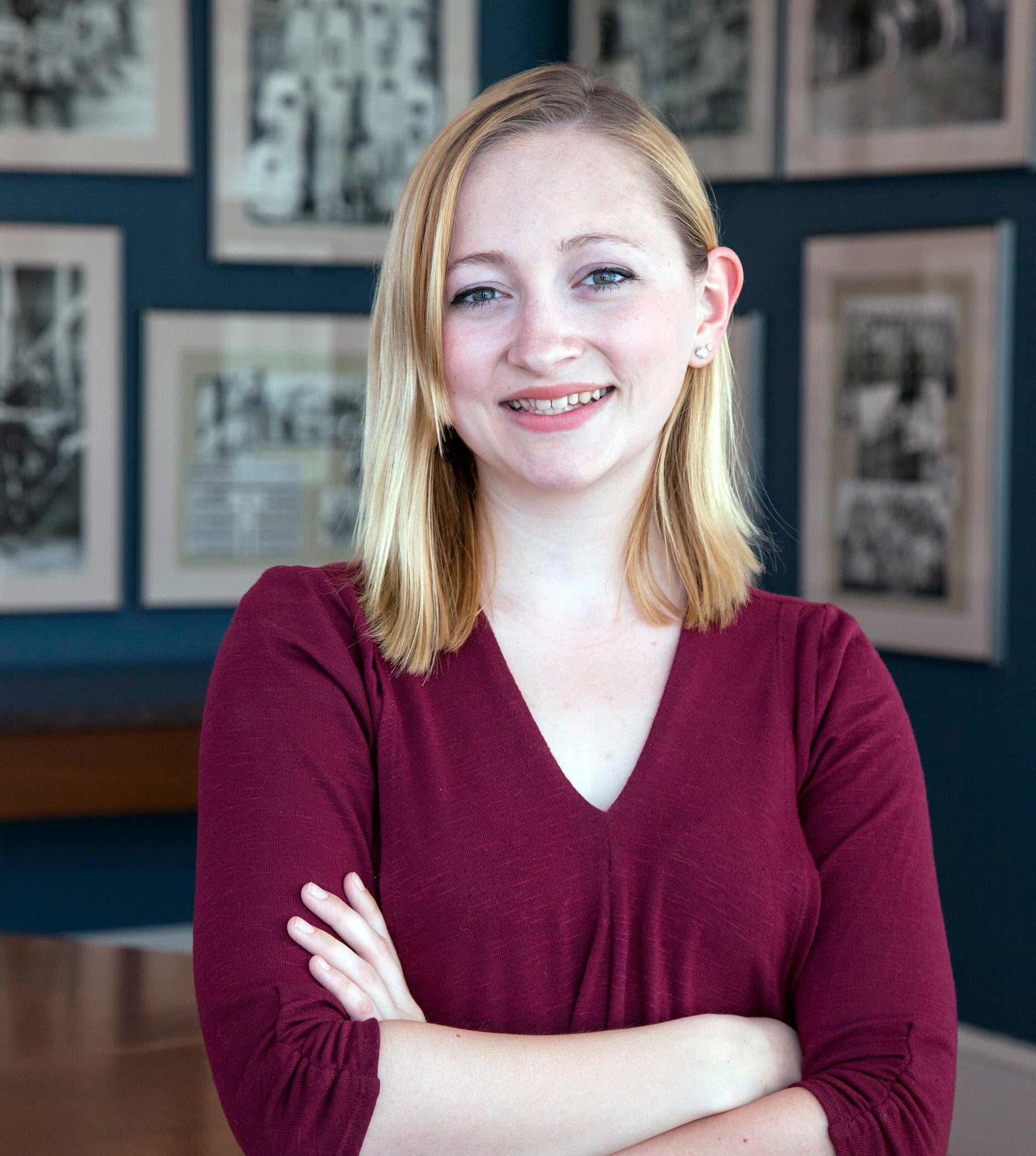KINGSTON, R.I., April 21, 2017—University of Rhode Island engineering junior Rachel Bellisle is one of those rare people who uses both sides of her brain.
One side is drawing portraits and playing the oboe, the other side is analyzing neurological signals and building electrical circuits.
Biomedical engineering, she says, is a perfect fit, a blend of science and design to create devices that improve and save lives. Her uniqueness did not go unnoticed by The Barry Goldwater Scholarship and Excellence in Education Foundation.
Bellisle, 20, of Exeter, received an honorable mention for a Goldwater Scholarship, one of two URI students recognized. (A second URI student from Georgia, Cherish Prickett, was selected as a Goldwater Scholar.)
The Goldwater is the most prestigious undergraduate national scholarship for students in the fields of math, the natural sciences and engineering. Eligible sophomore and junior college students may only apply if nominated by their institution, and each institution is limited to four nominations a year.
“I’m very excited about the honor,’’ says Bellisle, enrolled in the URI Honors Program. “It validates that I’m heading in the right direction with my career and that my research is important in the biomed field.”
Bellisle was acknowledged for her research exploring how tiny eye movements, or microsaccades, impact the accuracy of electroencephalogram, or EEG, signals. She works with Walter Besio, a professor of biomedical engineering at URI who created the bull’s-eye electrode so sensitive it can translate a person’s thoughts into electrical impulses interpreted by a computer.
“Having a clear EEG signal and understanding that signal are crucial to get an accurate reading to study epilepsy and other neurological conditions,” says Bellisle. “Our research can help improve the diagnosis and treatment of these conditions.”
Engineering rubbed off on Bellisle at an early age. Her father, Matt, is a civil engineer, and she remembers seeing him tackle, with glee, household projects. In high school, she excelled in math and science—as well as art and music. But when it came time to settle on a degree program, she chose engineering at URI, her father’s alma mater.
“I knew art was more of a hobby,” she says. “I wanted to do more to contribute to society and make a difference using my proclivity for math and science.”
At URI, she settled on biomedical engineering after taking BME281, a seminar that sparked her interest in the field and “lit up my life.” Her presentation topic was about an ultrasound device that could be used at the international space station.
“I was so intrigued about the potential of a medical device,” she says. “This first biomed class changed everything for me. Even my mom noticed my excitement.”
Her sophomore year she started working with Professor Besio in his Neuro Rehabilitation Lab on the EEG eye movement project. She was hooked on taking what she learned in textbooks and applying it in the lab.
Bellisle has also distinguished herself with professional engineering groups. As a member of the URI chapter of the Society of Women Engineers, she does outreach programs with the local Girl Scouts to inspire girls to pursue degrees in math and science.
“Our group is a really great support system for women in engineering,” says Bellisle, who is secretary of the group and will be vice president next year. “We give each other advice and encouragement, and provide opportunities to develop and grow as college students and professionally.”
Bellisle is also president of the URI chapter of Engineering in Medicine and Biology Society, a co-ed group that has seen membership more than double under her leadership.
The group sponsors professional development events for biomedical engineering students, including tours of local companies and workshops. It also sends students to international conferences.
Bellisle is especially proud of the group’s collaboration with the Matty Fund of Rhode Island, which helps people with epilepsy and their families.
“It’s our way of giving back,” says Bellisle. “We get to interact with the kids at events—pumpkin festival, egg hunt, golf tournament. It’s incredibly rewarding.”
This summer, Bellisle will veer slightly—and happily—from her academic path with an internship working on exoskeletons, a wearable robotic device used for gait training, for children with cerebral palsy. The 10-week paid internship at the National Institutes of Health is highly competitive: Bellisle was one of 16 students accepted from hundreds of applicants.
“My experience here at URI has been fantastic,” she says. “I’ve made so many connections, worked with outstanding professors and made great friends. The engineering department here has such a strong community. With engineering, there’s always a point when you say, ‘I can’t do this.’ So it’s really great to have people supporting and helping you.”
One day, she hopes to get her doctorate in biomedical engineering. Meanwhile, she’ll continue creating and discovering. For her senior Honors Project she’ll use physics and biomechanics to study the best position for playing wind instruments, including her beloved oboe.

